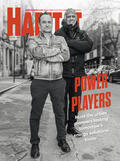HABITAT
Ask Habitat: How Can We Keep Board Meetings from Derailing?

HABITAT ANSWERS: Preparation and follow-up are crucial to ensuring your board meetings go smoothly. Self-managed boards like yours must be self-organized, and that means setting a time limit, preparing an agenda and sticking to it and making sure someone properly prepares minutes and distributes them after the meeting.
When setting agenda items, you should look back at the prior meeting's minutes so you can use them to determine which items require follow-up. Make sure to include all the procedural agenda items at each meeting, such as approving the minutes from the prior meeting. And, perhaps most important, don't cram too much into one agenda.
It's better to schedule another meeting than to risk having a single meeting drag on for more than two hours. In fact, you might want to aim to keep meetings between an hour and an hour and a half.
Be firm but accommodating. Everyone needs to be able to have their say, but someone should be charged with keeping the meeting on track.
The secretary is responsible for the minutes, but can delegate this responsibility to someone else. However your board handles it, preparing the minutes is just as important afterward is just as important as the meeting itself.
Minutes are a board's corporate, public record, and must accurately reflect what was discussed and what was decided on during the board meeting. Keeping proper minutes also ensures that the next meeting will run smoothly.
Minutes can be more than just a record, too. Combining them with an action list for each board member will help speed progress after a meeting is adjourned. Doing so not only helps remind everyone what was discussed during the meeting, but also emphasizes what everyone agreed to do ahead of the next meeting.
Every building is a different type of community and board meetings reflect those different flavors. If you board has a lot of corporate types and professionals, it will probably be more inclined toward corporate-type sessions.
Others may have a more social approach. Each style has its own advantages and disadvantages, and it's up to your board to decide what works best. But, at the very least, organization and focus will help keep things manageable, and that's bound to make everybody happy.
For more, see our Site Map or join our Archive >>


